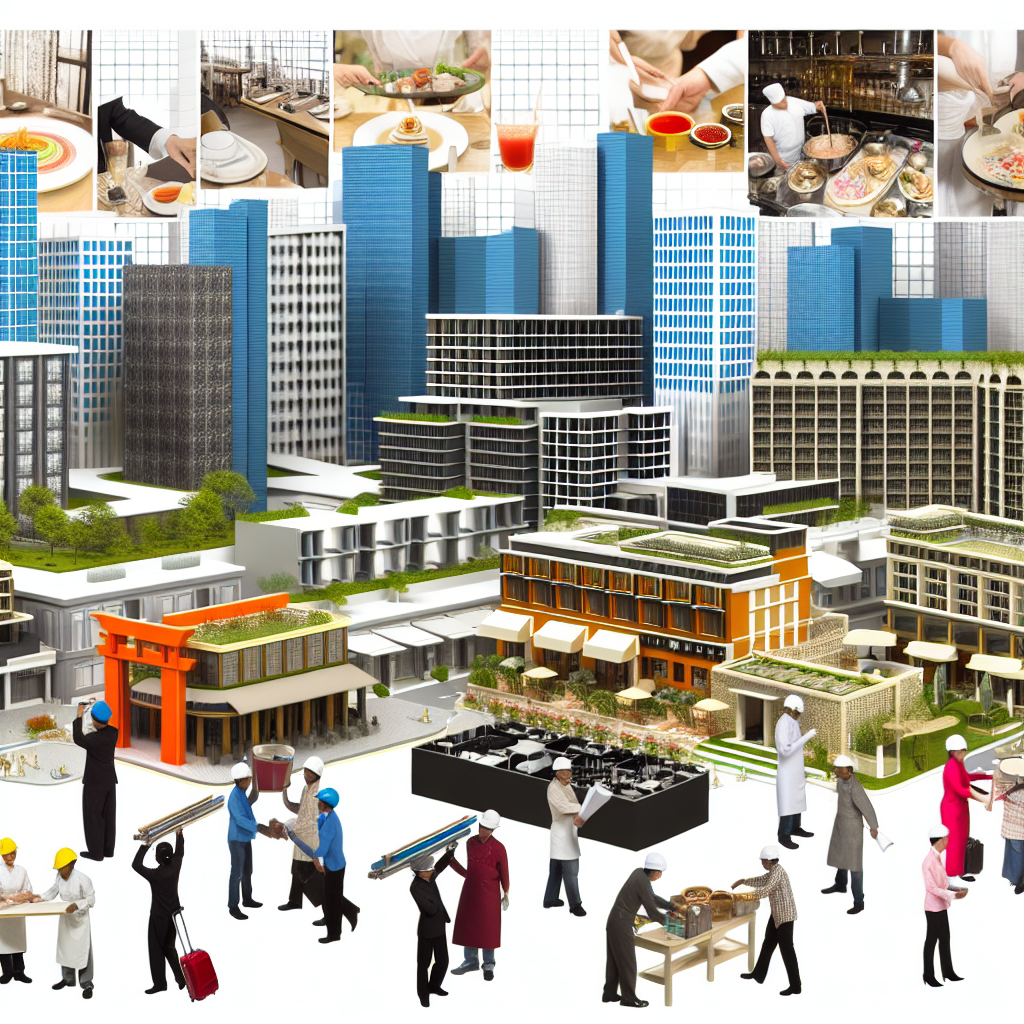The hospitality sector plays a crucial role in the growth and development of infrastructure in various ways. From providing accommodation and food services to tourists and travelers, to creating employment opportunities and contributing to the local economy, the hospitality sector has a significant impact on infrastructure development. In this article, we will explore the different aspects of how the hospitality sector contributes to the growth of infrastructure.
1. Infrastructure Development for Tourism
Tourism is a major driver of infrastructure development, and the hospitality sector is at the forefront of catering to the needs of tourists. To attract tourists, destinations need to have well-developed infrastructure, including transportation networks, accommodation facilities, and recreational amenities. The hospitality sector plays a vital role in developing and maintaining these infrastructure components.
For example, hotels and resorts invest in building and upgrading their facilities to meet the demands of tourists. They provide comfortable and convenient accommodation options, which in turn attract more tourists to the destination. This leads to increased investment in infrastructure development, such as airports, roads, and public transportation systems, to cater to the growing number of visitors.
2. Employment Generation
The hospitality sector is a significant source of employment, both directly and indirectly. The growth of the sector creates job opportunities for various skill levels, from entry-level positions to managerial roles. This, in turn, leads to increased income levels and improved living standards for individuals and communities.
Moreover, the employment generated by the hospitality sector has a multiplier effect on the economy. Employees in the sector spend their income on various goods and services, thereby supporting other industries and contributing to the overall economic growth. This increased economic activity further fuels infrastructure development, as the government and private sector invest in improving transportation, utilities, and public facilities to meet the growing demands of the population.
3. Collaboration with Local Communities
The hospitality sector often collaborates with local communities to support infrastructure development. Hotels and resorts frequently engage in corporate social responsibility initiatives, such as funding community projects, supporting education and healthcare facilities, and promoting sustainable development.
For instance, a hotel chain may partner with local authorities to improve the quality of roads leading to their properties, ensuring better accessibility for both tourists and local residents. This collaboration not only benefits the hospitality sector but also enhances the overall infrastructure of the region.
4. Case Study: Dubai’s Hospitality Sector and Infrastructure Growth
Dubai, a city known for its rapid infrastructure development, provides an excellent case study of how the hospitality sector contributes to growth. The city’s hospitality sector has played a pivotal role in attracting tourists and investors, leading to significant infrastructure development.
Over the past few decades, Dubai has witnessed a boom in the construction of hotels, resorts, and other accommodation facilities. This growth has been driven by the increasing number of tourists visiting the city. In response to the growing demand, the government and private sector have invested heavily in infrastructure development, including the expansion of airports, construction of new roads and bridges, and the development of world-class entertainment and leisure facilities.
The hospitality sector in Dubai has not only created employment opportunities but has also acted as a catalyst for infrastructure growth. The city’s iconic landmarks, such as the Burj Khalifa and Palm Jumeirah, were developed to attract tourists and enhance the overall tourism experience. These infrastructure projects have not only transformed Dubai into a global tourist destination but have also contributed to the city’s economic diversification and sustainable growth.
5. Statistics on the Impact of Hospitality Sector on Infrastructure
To further understand the impact of the hospitality sector on infrastructure growth, let’s look at some statistics:
- The World Travel and Tourism Council estimates that the direct contribution of the travel and tourism sector to global GDP was $2.9 trillion in 2019, accounting for 3.3% of total GDP.
- In 2019, the travel and tourism sector supported 330 million jobs worldwide, representing 10% of global employment.
- According to a report by Oxford Economics, every $1 million spent in the hospitality sector generates $1.5 million in economic output, supporting 50 jobs.
- In the United States, the hospitality sector contributed $1.6 trillion to the country’s GDP in 2019, supporting 15.8 million jobs.
These statistics highlight the significant contribution of the hospitality sector to the global economy and its role in supporting infrastructure development.
6. Conclusion
The hospitality sector plays a crucial role in the growth of infrastructure. Through its contribution to tourism, employment generation, collaboration with local communities, and support for infrastructure development, the sector acts as a catalyst for economic growth and sustainable development. The case study of Dubai’s hospitality sector demonstrates how the sector can transform a city into a global tourist destination and drive infrastructure development. As the sector continues to grow, it will continue to play a vital role in shaping the infrastructure of cities and regions around the world.

